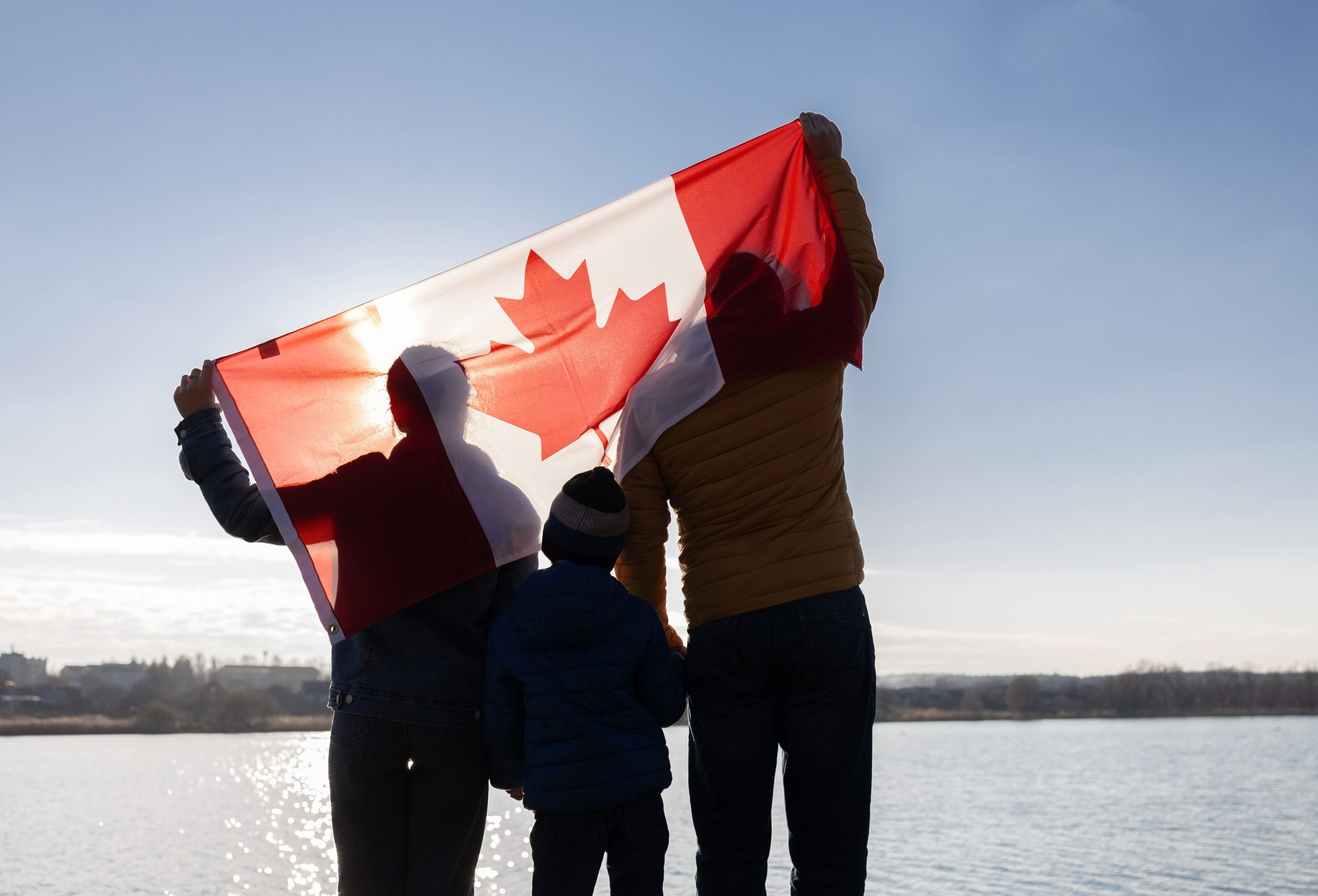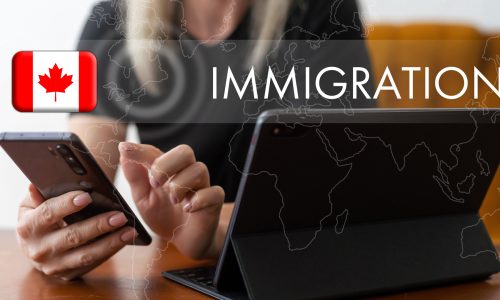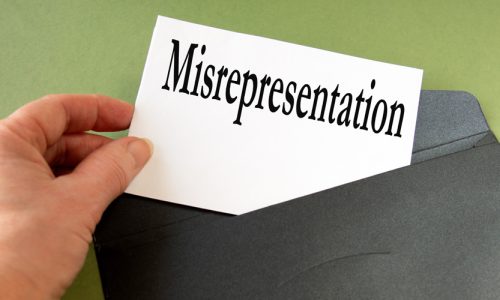Understanding Family Sponsorship in Canada: Eligibility and Requirements

Family reunification is a cornerstone of Canada’s immigration system, offering pathways for permanent residents and citizens to bring loved ones to the country.
Canada Immigration Family sponsorship programs enable individuals to sponsor eligible relatives under specific guidelines. For those navigating this process, understanding the eligibility criteria and requirements is vital.
What is Family Sponsorship in Canada?
Family Class Sponsorship is an immigration program in Canada that allows Canadian citizens or permanent residents to sponsor certain family members to become permanent residents of Canada. The program is part of Canada’s broader immigration strategy to reunite families and strengthen social ties. Here’s how it works:
The program covers a range of relationships, including spouses, common-law partners, dependent children, parents, and grandparents. Additionally, under certain conditions, other relatives may qualify.
Eligibility Criteria for Sponsors
To act as a sponsor under Canada’s Family Class Sponsorship Program, some of the requirements that individuals must meet include:
1. Who Can Sponsor?
To qualify as a sponsor, the individual must be a Canadian citizen or a permanent resident of Canada. If the sponsor is a citizen living abroad, they must provide proof of their intent to return to Canada when the sponsored family member arrives.
2. Age Requirement
Sponsors must be at least 18 years of age to be eligible.
3. Financial Obligations
Sponsors are required to demonstrate their ability to provide financial support for the sponsored family members. This includes covering essential needs such as food, housing, and any healthcare services not covered by Canada’s public healthcare system. In some cases, meeting specific income thresholds may be necessary, especially for sponsoring parents or grandparents.
4. Legal and Criminal Background
Individuals with certain criminal convictions, especially those involving violence or offenses against family members, may be deemed ineligible. Additionally, those undergoing bankruptcy proceedings are not eligible to sponsor until their bankruptcy is discharged.
5. No Existing Sponsorship Defaults
Sponsors must not have defaulted on previous sponsorship agreements. This includes failing to provide agreed financial support for previously sponsored individuals or failing to repay social assistance benefits received by a previously sponsored family member.
Who Can Be Sponsored?
The Canada family sponsorship program applies to several categories of relatives:
1. Spouses, Common-Law Partners, and Conjugal Partners
- Married spouse.
- Common-law partner (lived together for at least 12 consecutive months).
- Conjugal partner (in a genuine relationship but unable to live together due to exceptional circumstances like immigration barriers).
2. Dependent Children
- Biological or adopted children under the age of 22 and unmarried.
- Children over 22 may qualify if they depend on their parents due to a physical or mental condition.
3. Parents and Grandparents
- This requires applying through the Parents and Grandparents Program (PGP), which is subject to quotas, financial requirements and a lottery system.
- When this program is closed, relatives can apply for a Super Visa.
4. Other Relatives
- Orphaned siblings, nieces, nephews, or grandchildren under 18 who are not married or in a common-law relationship.
- In rare cases, other family members may be sponsored if the sponsor has no other close relatives in Canada or abroad.
Requirements for the Sponsored Individual
Family members being sponsored under Canada’s Family Class Sponsorship Program must meet the following conditions, including:
1. Medical Examinations
Sponsored individuals are required to undergo medical examinations conducted by a panel physician approved by Immigration, Refugees and Citizenship Canada (IRCC). These tests ensure that applicants meet Canada’s health standards and do not pose a risk to public health or safety.
2. Security and Background Checks
Comprehensive security and background checks are conducted to assess whether the sponsored individual has a criminal record or poses a security risk. Applicants with serious criminal offenses or connections to organized crime may be deemed inadmissible.
3.Documentation
Sponsored individuals must provide accurate and complete documentation to support their application. This includes:
- Proof of relationship to the sponsor
- Identification documents
- Any additional evidence requested by IRCC to validate the authenticity of the relationship (in the case of spousal sponsorship).
Steps to Apply for Family Sponsorship
1. Determine Eligibility
Ensure that both the sponsor and the sponsored individual meet the eligibility criteria outlined by IRCC. This includes meeting age, financial, legal, and relationship requirements.
2. Prepare the Application
Collect all necessary forms, documents, and evidence to support the application. Key documents include:
- Proof of relationship to the sponsor
- Identification documents
- Any additional evidence requested by IRCC to validate the authenticity of the relationship (in the case of spousal sponsorship).
3. Submit the Application
Submit your family class sponsorship application package to IRCC, ensuring all forms are filled out correctly and required fees are paid. IRCC typically provides specific instructions on where and how to submit the application, depending on the type of sponsorship.
4. Processing and Decision
Submit your family class sponsorship application package to IRCC, ensuring all forms are filled out correctly and required fees are paid. IRCC typically provides specific instructions on where and how to submit the application, depending on the type of sponsorship.
5. Fulfill Financial Undertakings
Once the application is approved, the sponsor must commit to providing financial support for the sponsored individual for a specified period, as determined by IRCC. This ensures the sponsored person does not rely on social assistance during the undertaking period.
Common Challenges in Family Sponsorship Applications
1. Incomplete, False, or Inaccurate documentation
2. Failure to Meet Financial Requirements
3. Misrepresentation
Any form of misrepresentation, whether intentional or accidental, can have severe consequences. This includes providing misleading information, withholding relevant details, or submitting fraudulent documents. Misrepresentation can result in application denial, bans from reapplying for up to five years, or even legal penalties.
Partnering with The Law Office of Tià Sherene McCalla
Family sponsorship applications are detailed and often complex, but with the right support, the process becomes much more manageable. With the expertise of the Law Office of Tià Sherene McCalla, navigating Canada Immigration family sponsorship becomes less overwhelming while avoiding common pitfalls.
From preparing precise documentation to understanding specific legal requirements, her team offers tailored support to meet your needs. Whether you’re sponsoring a spouse, parent, or child, getting the right legal guidance makes all the difference.
With our personalized support and a thorough understanding of Canada’s immigration laws, we can help you streamline the process and maximize your chances of success. Getting the right guidance can make all the difference in reuniting with your loved ones.
Contact The Law Office of Tià Sherene McCalla to evaluate all Canada Immigration-related queries.






